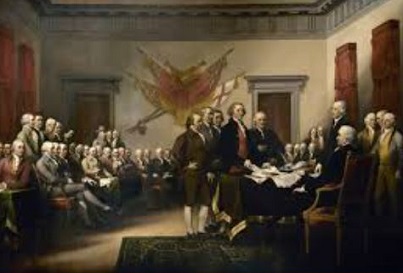 The question I ask in the title of this post—what role should government play in our lives?—is a fundamental question that has plagued our nation throughout its history. The same question plagues other nations as well, and it is probably at the root of the recent Brexit vote.
The question I ask in the title of this post—what role should government play in our lives?—is a fundamental question that has plagued our nation throughout its history. The same question plagues other nations as well, and it is probably at the root of the recent Brexit vote.
I recently read an editorial by Daniel Henninger in The Wall Street Journal on June 29, 2016, entitled Government Hits the Wall. Mr. Henninger quotes Ronald Reagan, who juxtaposed two schools of thought on what government should be as follows:
“We have been tempted to believe that society has become too complex to be managed by self-rule, that government by an elite group is superior to government for, by, and of the people. But if no one among us is capable of governing himself, then who among us has the capacity to govern someone else?”
So that is essentially the debate—can an elite group govern the people better than they can govern themselves?
Mr. Henninger describes the liberal point of view that in exchange for tax revenue, government bureaucratic experts will deliver socially desirable benefits equitably to the citizenry. The opposing conservative point of view is that we are each better suited to govern ourselves than anyone else is, and, to the extent government is needed, it should be close to the people.
There are pros and cons to both sides of this debate, as with any serious public issue. There is no question but that many people and communities do not govern themselves well. They need someone to impose and enforce restraints on their behavior. Except for the most extreme libertarians, most conservatives want some limits on people’s actions—the “my rights stop and the end of your nose” approach to government.
On the other hand, increasing the size of the national government (or even international, in the case of the European Union) moves government far from the governed. How can a distant national bureaucracy understand the local issues that give rise to controversy? How will a bureaucracy of “experts” stop itself and decide that no more regulation is needed? If the bureaucracy makes a mistake, who will fix it? Or will we all suffer?
At some level, it is all a matter of balancing. At what level does government operate best—national, state, local? The answer differs by issue. When is expertise of value and when is consensus more important? Best practices might best be disseminated on a broader level, but consensus is more easily developed in smaller groups.
In my opinion, the U.S. Constitution did a pretty good job of balancing federal and state responsibilities and individual and governmental interests. It isn’t perfect, and there are things in it I would change—probably different things than many of my readers would change.
In the end, it boils down to “the consent of the governed.” If it doesn’t, we devolve into tyranny. The British voters decided they no longer consented. For better or for worse, their government must address their concerns to avoid tyranny.
On this Independence Day in the United States, when our forefathers declared their independence from tyranny, where do you come down on the role of government—should we commit to governing ourselves (or at least to focusing on local government) or should we look to the national experts and accept a bigger bureaucracy?
Happy Independence Day!



